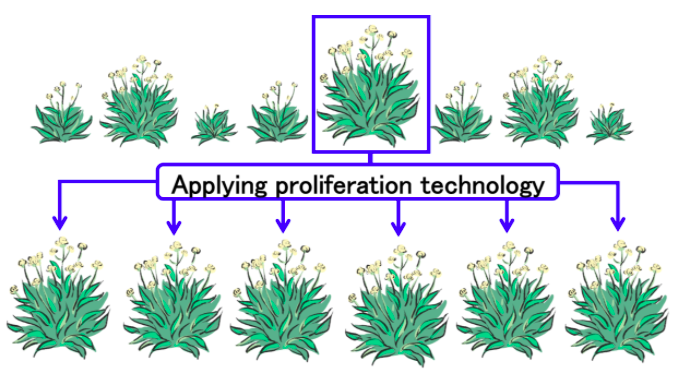Bridgestone Develops New Technology for Improving Guayule-Derived Natural Rubber Productivity through Joint Development with Kirin Holdings

TOKYO, January 28, 2021 /3BL Media/ — Bridgestone Corporation announced the development of a new technology for improving guayule-derived natural rubber productivity through a joint development project with Kirin Holdings Company, Limited (Kirin Holdings). The project combines the technologies of Kirin Holdings with the guayule cultivation expertise of Bridgestone to deliver large-scale propagation of guayule plants from high-quality seeds. With this innovation, Bridgestone aims to increase the productivity of guayule farms and advance sustainable materials*1 for tires through the diversification of the world’s natural rubber supply.
Bridgestone will field test the new technology on guayule seedlings grown at its 287-acre Agro Operations Research Farm in Eloy, Arizona. The new technology may also be used to support the guayule breeding process to more rapidly increase a desired genotype for testing and production. Through these efforts and others, Bridgestone seeks to develop alterantive and viable sources for tire-grade natural rubber, reducing its long-term environmental impact and simultaneously furthering its business.
Bridgestone is taking steps to decouple economic growth from environmental impacts, as indicated in the United Nations’ Sustainable Development Goals. More than 90 percent of the world’s natural rubber supply is extracted from the Para rubber tree, which primarily grows in Southeast Asia. As part of the company’s Our Way to Serve corporate social responsibility commitment, Bridgestone launched its guayule research and development efforts in 2013 to help diversify the world’s natural rubber supply. Utilizing the Kirin Holdings’ world-class bio technology, we will develop the technology for propagating massive stable quality guayule for practical use. In addition to the Agro Operations Research Farm in Eloy, Bridgestone operates the Biorubber Process Research Center in nearby Mesa, Arizona, where a team processes guayule-derived natural rubber for testing in tire applications.
To achieve the company’s vision, “2050, Bridgestone continues to provide social value and customer value, as a sustainable solutions company,” Bridgestone have set a new environmental mid-term goal, Milestone 2030, to further promote the challenges of "decoupling" the growth of its business from its environmental impact and increased resource consumption. The company provides solutions through innovation to contribute to safer and more secure transportation, as well as it will further reduce its impact on the environment by contributing to CO2 reduction and realizing the circular economy including expanding renewable resources.
Bridgestone will continue to evolve technological innovations by combining our unique rubber knowledge with digital technologies and will co-create value through the work with various partners.
-
The Bridgestone Group defines sustainable materials as materials “1) that come from resources with a guaranteed continual supply, 2) that can be used as part of our businesses over the long term and 3) that have a low environmental and social impact over their lifecycle from procurement to disposal.”
About Bridgestone Corporation:
Headquartered in Tokyo, Bridgestone Corporation is a global leader providing sustainable mobility and advanced solutions. With a business presence in more than 150 countries worldwide, Bridgestone offers a diverse portfolio of original equipment and replacement tires, tire-centric solutions, mobility solutions, and other rubber-associated and diversified products that deliver social and customer value. Guided by its global corporate social responsibility commitment, Our Way to Serve, Bridgestone is dedicated to shaping a sustainable future of mobility and improving the way people around the world move, live, work and play.

